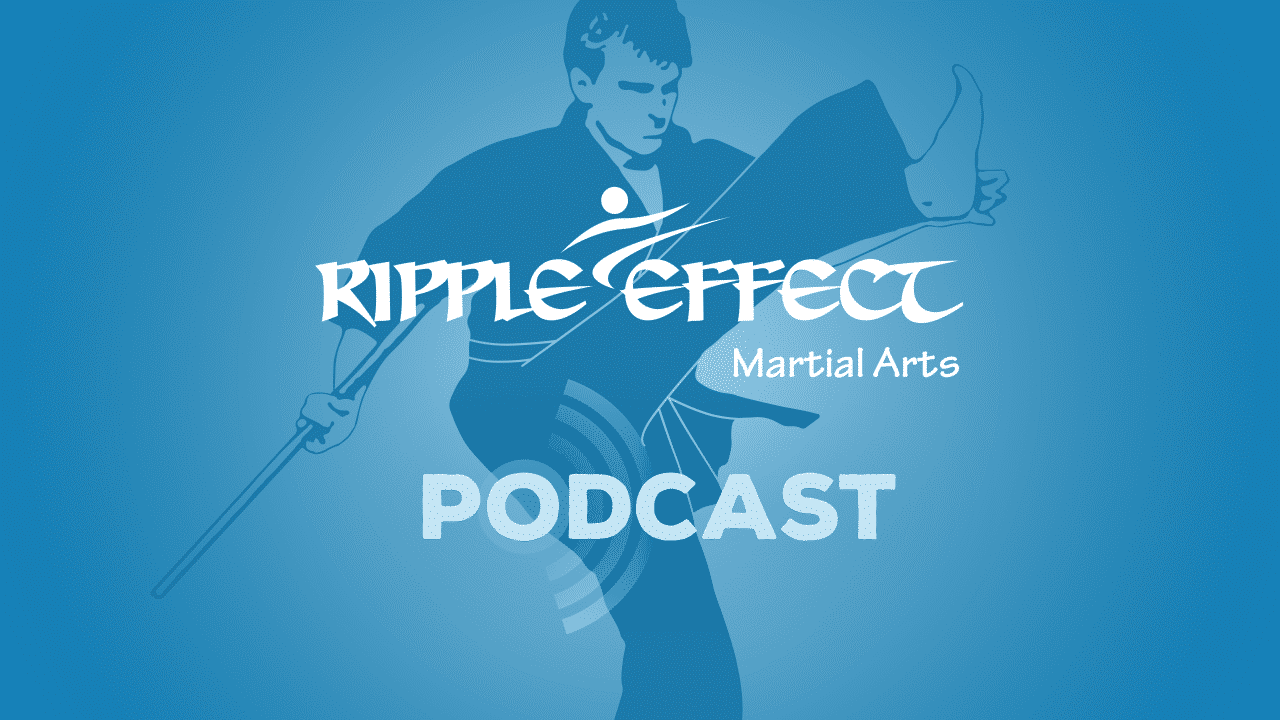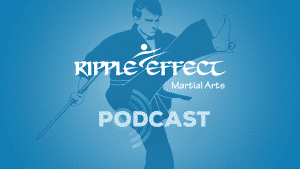How did you come to karate?
My training started with Ripple Effect. (I trained a bit in karate as a kid, but I didn’t make it far.) I started at Ripple Effect in an administrative position on my first day in Colorado. Then my training to black belt started.
My training started three years ago. And I earned my 1st degree black belt this past weekend.
In terms of a journey to black belt, that’s a little accelerated, is that right?
It is a little accelerated, yes. The path to black belt is usually about 4 years. But with my full immersion over the past three years in the karate schools I progressed a little more quickly.
Where are you from?
I’m from just outside of Minneapolis, a little town called Minnetonka. Minnetonka Moccasins, many people may know it for. I remember thinking Tonka trucks came from there, but unfortunately that’s not true [laughs].
What brought you to Colorado?
It’s a funny story because I was actually watching the Karate Kid. I had been working in my field [Human Resources] after college, and I decided I needed a change. So I was watching this movie and talked to my sister, who was living in Colorado, and she said you ought to move out.
I thought, “this is crazy, just picking up and moving.” But if Daniel LaRusso could do it [laughs]. My first day out here I had my interview at the Fort Collins school of Ripple Effect Martial Arts.
So you had martial arts on your mind before you even moved?
Yeah, it’s a little surreal. The first person I met at Ripple Effect Martial Arts was also the first person I met in the state of Colorado, Mr. [Sean] Robinson.
What happened? What was your first impression of karate instructors?
I just watched the instructors for a little bit on the mat. I was surprised to see that they weren’t doing these fantastic karate moves. They were just sitting and talking. I thought they’d be breaking boards and jumping over each other with crazy kicks.
But then I realized that most of what we do here is talking about leadership. Making leaders.
That reminds me of samurai culture. Battle, fighting is so small, time-wise, compared to the philosophy, the warrior mentality.
There’s more to it than just punching and kicking. Especially for kids. You have to have the mentality of the warrior.
What has the black belt journey been like for your own life and teaching?
I’ve had the privilege of watching so many other black belt instructors and how they teach kids. How they get command of a class of kids who need to focus.
I also found myself saying yes sir, yes ma’am outside of the karate school. I just became more respectful without even thinking about it.
That’s what you want to inspire in kids, right? That sense of respect?
Absolutely. This month we’ve been talking about immersion, and that’s what I’ve been teaching to kids. Immersing yourself in this black belt attitude so that you’re practicing this respect at home and at school.
There’s a sense of composure that people recognize even when kids aren’t wearing a black belt or even a uniform.
Yeah, with just confidence alone, just seeing that shoot up. Even with white belts.
Sometimes kids need a space to be loud, to show off safely.
Yeah, we tell our students: Be loud. We encourage it.
What was your first tournament experience like?
It was a very humbling experience. I was knocked out of competition almost right away, in forms and sparring. But it was such a good opportunity. I was nervous. And just being done, after trying my best, felt amazing. It was great.
So it was worthwhile to compete in the karate tournament, even though it was over really quickly?
Yes sir. The whole build up, waiting for the tournament to start, was I felt like five times longer than the tournament itself, watching others compete. The time just flew.
We’re teaching kids how to be patient, right? That’s a huge part of it. Not just being on stage, but being off stage.
I tie that into becoming a black belt. Four years is forever in kid time. It takes patience to earn your black belt. You just get better and better, learning to work toward a giant goal.


